On November 12, IEEE Life Fellow, Associate Editor of Modern Power Systems and Clean Energy, and Professor Antonio Gomez-Exposito from the University of Seville was appointed as a Distinguished Visiting Professor at Tsinghua University. The appointment ceremony and report session were held at the Department of Electrical Engineering and Applied Electronics (EEA). The ceremony was hosted by Associate Professor Sun Kai, Assistant Dean of the Department, and Professor Kang Chongqing, Dean of the Department, presented Professor Gomez-Exposito with the Tsinghua University Distinguished Visiting Professor certificate and the Energy Internet Innovation Research Institute Distinguished Visiting Scholar certificate. Over 30 faculty and students, including Wu Wenchuan, Deputy Party Secretary of the Department, and Assistant Researcher Guo Hongye, attended the ceremony and the report session.
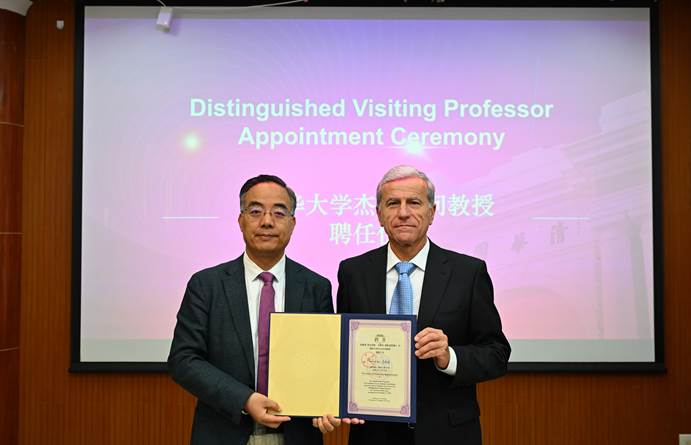
Professor Kang Chongqing Presented the Distinguished Visiting Professor Certificate to Professor Gomez-Exposito
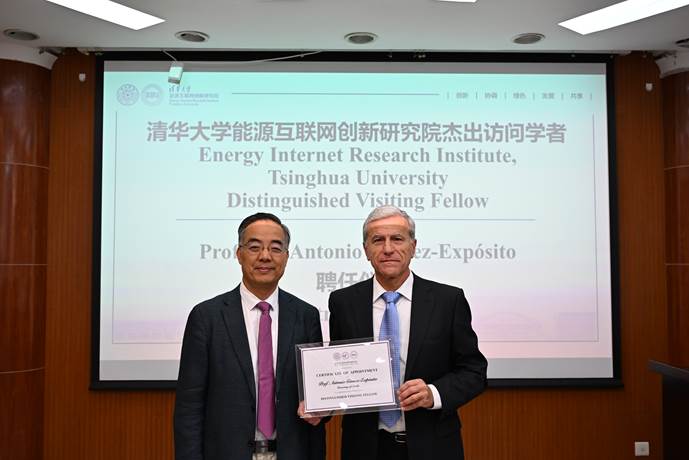
Professor Kang Chongqing Presented the Certificate of Distinguished Visiting Fellow of Energy Internet Innovation Research Institute to Professor Gomez-Exposito
After the appointment ceremony, Professor Gomez-Exposito delivered a special academic report to the faculty and students of EEA. The report was titled "Applied Maths and Power Systems: 125 Years of Symbiosis."
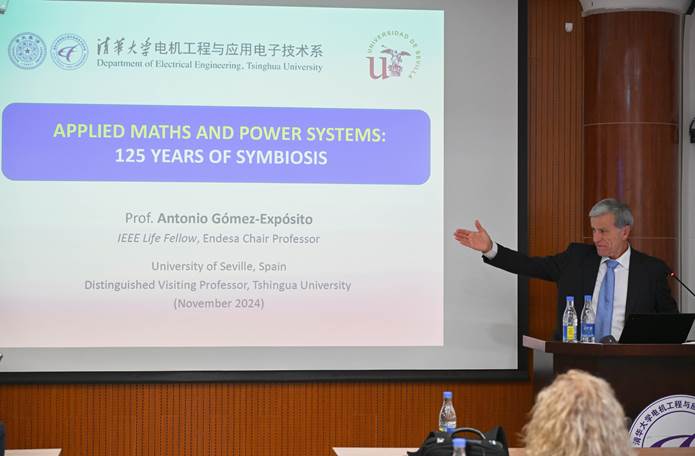
Professor Gomez-Exposito Delivers the Special Academic Report
In his report, Professor Gomez-Exposito first acknowledged the significant contributions made by Chinese scholars in the field of power system research. He then reviewed the deep historical connections between applied mathematics and electrical engineering, specifically introducing four key applications of applied mathematics in power system analysis: the introduction of the generalized phase concept in complex simplification problems, the importance of the fast Fourier transform algorithm for frequency and time domain separation, the minimum degree algorithm for maintaining matrix sparsity in solving large-scale linear systems, and efficient solutions for nonlinear and non-convex equation systems. At the end of his report, Professor Gomez-Exposito encouraged scholars in the power systems field to seize opportunities and use applied mathematics tools to continuously advance power system technologies. The report, progressing from basic to advanced concepts, was rich in content and greatly benefited the attendees.
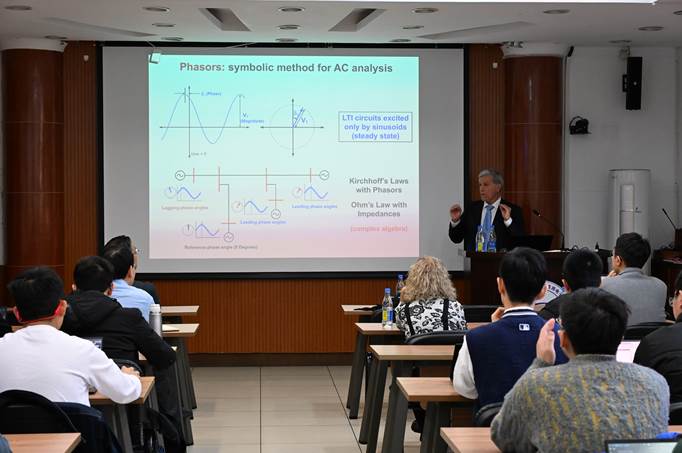
Academic report
After the report, the faculty and students of the Department engaged in in-depth discussions with Professor Gomez-Exposito based on their own research directions. Topics discussed included the dimensional restrictions of auxiliary vectors introduced by factorization in nonlinear value space expansion problems and the construction methods of nonlinear mappings in solving nonlinear system roots. Professor Gomez-Exposito patiently answered the questions and encouraged everyone to innovate by combining electrical engineering and mathematics disciplines.
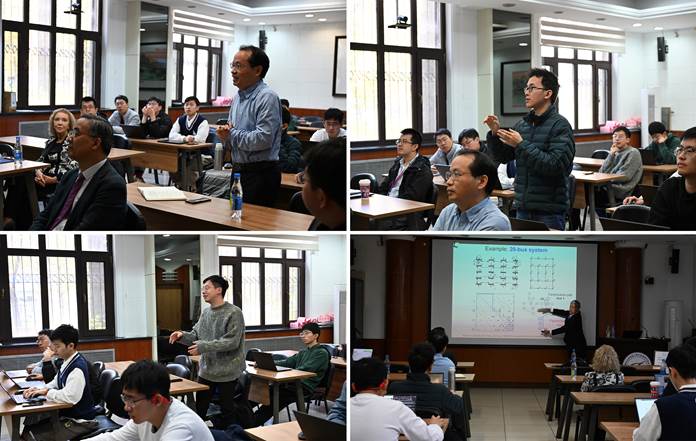
Faculty and students engaged in discussion with professor gomez-exposito
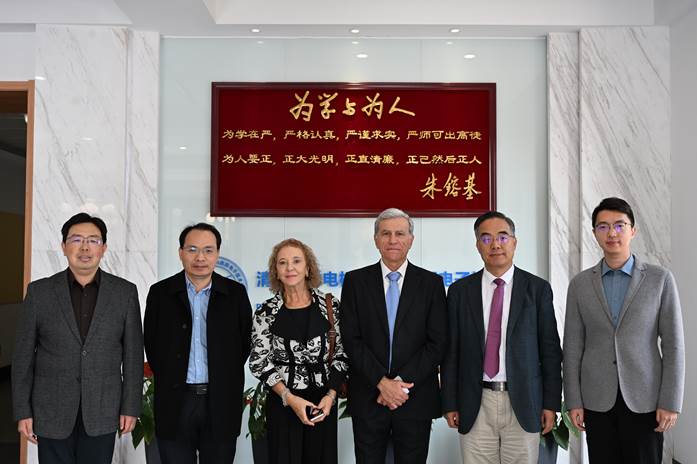
Group photo of Professor Gomez-Exposito and his wife with the attending faculty
About Professor Gomez-Exposito:
Professor Gomez-Exposito obtained his PhD from the University of Seville in 1985. He is the Endesa Chair Professor in the Department of Electrical Engineering at the University of Seville and served as the Department Dean for 12 years. Additionally, Professor Gomez-Exposito is a Life Fellow of the IEEE and the recipient of the IEEE/PES Outstanding Power Engineering Educator Award in 2019. With over 40 years of research in the field of power systems, his primary research areas include power system operation control, state estimation, digital signal processing, and the control of Flexible AC Transmission System (FACTS) devices. To date, he has published more than 350 research papers, with 140 of them in high-impact journals. He has been ranked among the top 2% of scientists globally by Stanford University and has held approximately 130 seminars or short courses in 19 countries.

















 News & Events
News & Events